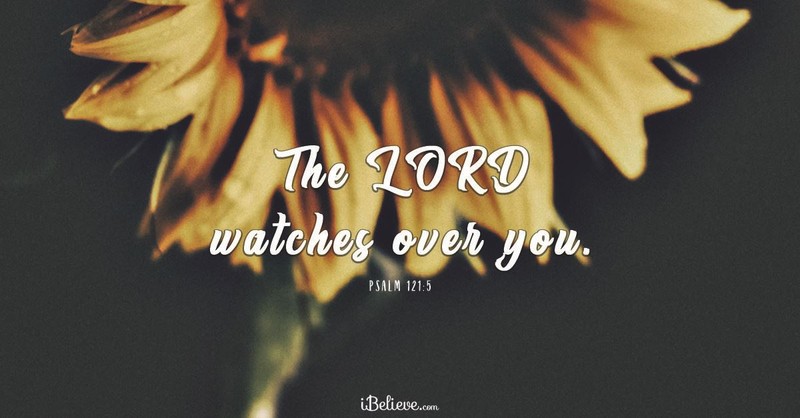
Songs of Ascent is a collection of 15 Psalms (Psalm 120-134). Though the origin of the phrase is obscure, the generally accepted view is that the Hebrew term maʿalot (goings up) is a reference to pilgrims going up to Jerusalem for the three required festivals (Song of Degrees in Holman Illustrated Bible Dictionary).
“That is where the tribes go up— the tribes of the LORD— to praise the name of the LORD according to the statute given to Israel.” (Psalms 122:4).
Jerusalem was surrounded by mountains so trips to the holy city involved a lot of uphill walk. These Psalms were supposedly sung on those occasions when people made their annual pilgrimage to Jerusalem to worship. The Songs of Ascent is also known to be attributed to the rise of the melody and rhythm in these 15 Psalms.
Whatever maybe the origin of these Psalms, they held a great value in believers’ lives then, and still do today. Let’s try and unpack three truths in these Songs of Ascent.
Photo Credit: Thinkstock/oscarhdez

1. Joy of Providence
Song of Ascents record numerous accounts of God’s goodness, provision, and sustenance. Whatever the situation or how hard the adversary, God’s people were taught time and again that their help is found in God and God alone.
Because our God is a God who hears us (Psalm 120:1)
- He delivers us (Psalm 120:2)
- He is our Keeper (Psalm 121:5)
- He preserves us (Psalm 121:7)
- He is on our side (Psalm 124:1)
- He leads us (Psalm 125:5)
- He strengthens us (Psalm 125:1)
The songs of ascent is home to the famous Psalm 121 that speaks about the God, the help of those who seek Him.
“I will lift up my eyes to the hills
From whence comes my help?
My help comes from the Lord,
Who made heaven and earth.”
(Psalm 121:1-2)
Design Credit: Rachel Dawson

"The God of Israel is our Lord also."
In Psalms we find great comfort and peace because the verses are experiential. They’ve been curated as a result of the Psalmist’s own life experiences. The manner in which the Psalms are written provides extreme consolation when similar trials surmount our lives.
Whether it's distress (Psalm 120:1), deceit (Psalm 120:2), evil (Psalm 121:7), enemies (Psalm 124:2), or our own crooked ways (Psalm 125:5), God is our help. He watches over us and keeps us from falling aside. The God of Israel is our Lord also. He continues to come alongside His people. And the songs of Ascent is a great reminder of that.
Photo Credit: Thinkstock/digitalskillet

"Trusting in God is a simple surrender..."
Our responsibility is to stay still, trusting in His promises. God calls us to calm and quiet our souls like a weaned child. David says, “Lord, my heart is not haughty, Nor my eyes lofty. Neither do I concern myself with great matters, Nor with things too profound for me.” (Psalm 131:1) What we see here is not the consequence of hopeless surrender but marks of willful maturity. He has put his trust and hope in the Almighty God, trusting Him to lead and guide.
Trusting in God is a simple surrender: “Yes Lord, take over.” It’s simple, yet the rewards are so comforting and satisfying.
Photo Credit: Unsplash

2. Joy in Salvation
An interesting addition to the songs of ascent are the Israelites’ songs of victory. These psalms capture Israel’s redemption and their freedom from bondage.
“When the Lord brought back the captivity of Zion,
We were like those who dream.
The Lord has done great things for us,
And we are glad.”
(Psalm 126:1,3)
They reminisce the times of horror they underwent in captivity. They had continually wept, cried, and pleaded for forgiveness. Now they count God’s blessings of deliverance. They sowed in tears, and now they reap in joy.
Design Credit: Rachel Dawson

"..be reminded of that grace and sing with joy."
Although a few Psalms in this collection chronicle their grim condition and their ardent plea for freedom, it is a reminder of our own state. We too were under the bondage of sin and darkness until God’s mercy and righteousness redeemed us and restored us. It’s important to be reminded of that grace and sing with joy.
“...our old man was crucified with Him, that the body of sin might be done away with, that we should no longer be slaves of sin.” (Romans 6:6)
Photo Credit: Thinkstock

"Our victory over our bleak and hopeless condition of sin is worth singing praises for."
Our victory over our bleak and hopeless condition of sin is worth singing praises for. As Thanksgiving approaches, we’re all mindful of things, circumstances, and people we are thankful for. But one thing we need to be thankful for, each and every day of our lives is the gift of salvation.
“Then our mouth was filled with laughter,
And our tongue with singing.
Then they said among the nations,
‘The Lord has done great things for them.’” (Psalm 126:2)
Photo Credit: Thinkstock/CarlFourie

Joy of Worship
“I was glad when they said to me,
‘Let us go to the house of the Lord.’”
Songs of ascent also emphasizes worship. Many of David’s psalms in this collection expresses his deep passion to worship and revere God for all His works because at the end of redemption is worship. Those who are saved live for His glory. Those who are saved live to honor His name.
Photo Credit: Unsplash/Matheus Ferrero

"God has done great things and our response is worship."
Praise and worship should come naturally to God’s people. Praise and worship are the lifeline of the redeemed. Enroute to their place of worship, the Israelites are singing praises and worshipping God. They are counting their blessings as well as the attributes of their Lord. They’re going up “to give thanks to the name of the Lord” (Psalm 122:4).
Worship is an extension of God’s work in a believer’s life. God has done great things and our response is worship. “Sing praises to the Lord, for he has done gloriously; let this be made known in all the earth” (Isaiah 12:5). We’re called to continuously offer up praises to our God, acknowledging His name, power, dominion, and honor (Hebrews 13:15).
Design Credit: Rachel Dawson

"And we do this not out of obligation..."
And we do this not out of obligation, but it’s a natural rendition of our allegiance to Him. That is why Psalm 122:1 is so beautifully put when it says that it gives the Psalmist absolute pleasure and excitement when he goes to the house of worship.
“Behold, bless the Lord,
All you servants of the Lord,
Who by night stand in the house of the Lord!”
Photo Credit: Unsplash

"Are we singing? Are we filled with joy?"
Earlier we noted that the origin of the term “Songs of Ascent” could mean a few different things, but they are songs nonetheless. They were written to be sung and read in poetic connotations. These Psalms contain moments of grim reality of bondage and misery, passages showcasing God’s deliverance and mighty hand, verses of praise and worship acknowledging the goodness and mercy of God. Through it all, the people are observed reminiscing, singing and worshipping. It is a beautiful picture.
We’ve been through difficult times. We’ve been redeemed from the power and guilt of sin. We’ve experienced the goodness of God time and time again in our lives. Are we singing? Are we shouting out His praises from the rooftops and on uphill walks? Are we filled with joy?
“Lift up your hands in the sanctuary and bless the Lord.” (Psalm 134:2)
Alice William is a wife and programmer with a passion for writing. She started the blog, Walking in the Word, by journaling her Bible Studies. Her desire is to encourage other women in their walk with God with words that He has used to strengthen her own walk with Him. Her recent eBook An Ode to the Word is a collection of 31 poems inspired by the word of God referenced in God’s word. Each poem is drawn from the verse that talks about the word of God, sparking your curiosity and inviting you to a deeper experience with God's word. You can connect with Alice on Instagram and Pinterest.
Photo Credit: Thinkstock/Szepy
Originally published Monday, 19 November 2018.








